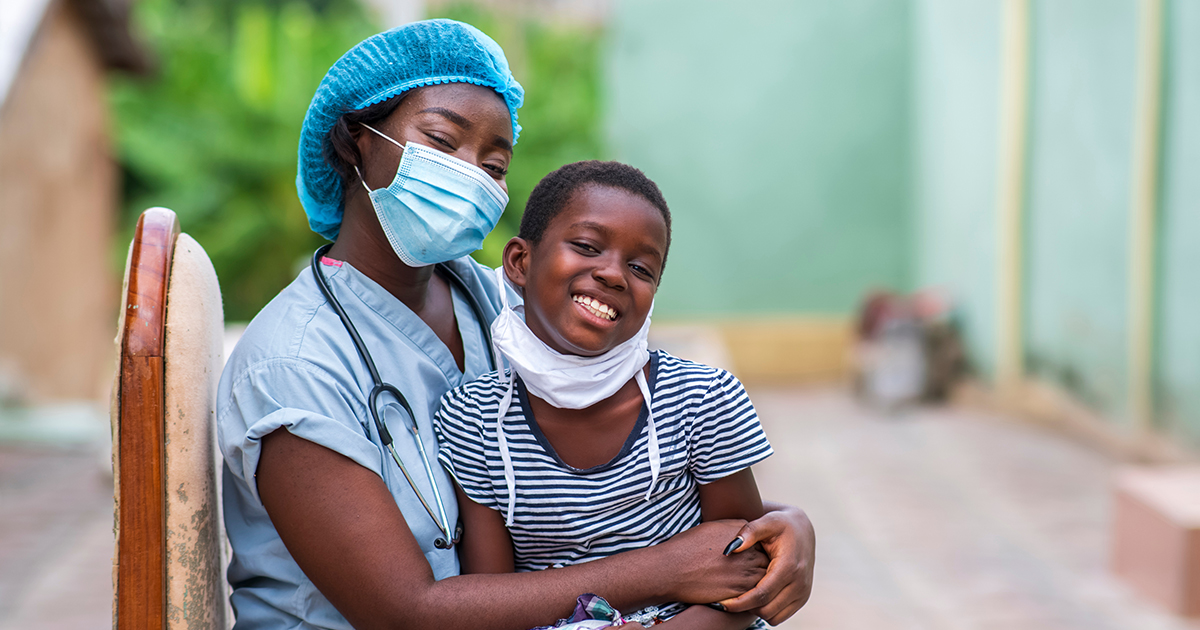In commemorating International Women's Day (IWD)this year, the Centre for Human Rights, University of Pretoria, seeks to draw attention to the role of women as caregivers, and to challenge the social, legal and economic foundations that cultivate negative perceptions and consequences for women in caregiving roles. The COVID-19 pandemic has been particularly instrumental in bringing into sharp focus women’s caregiving burden globally, both in the work and family context.
Globally, IWD celebrates the social, economic, cultural, and political achievements of women, and also calls for action to accelerate the realisation of women's equality in society. IWD has been observed since the early 1900s at a time of great expansion and turbulence in the industrialised world that saw booming population growth and the rise of radical ideologies. The theme for 2021 is #ChooseToChallenge which is based on the idea that ‘a challenged world is an alert world, and from challenge comes change’.
Women have traditionally borne a disproportionate burden of caregiving work. This trend is cultivated in social and cultural norms, and often reflected in the workforce where women tend to dominate careers associated with caregiving. For instance, more women than men work as nurses, healthcare practitioners, nursing home and home healthcare support workers, social workers, teachers, and childcare workers. Most of these professions are couched as support functions, and therefore relatively low-paying, and not adequately resourced. Also, despite the overrepresentation of women in these professions, they often lack gender specific accommodations, such as child care support.
Women’s caregiving work at home is largely unpaid yet highly consequential for the functioning of the society. There may be small nuances in how the care functions manifest from one culture, country or region to another, but the foundations and expectations on women follow similar patterns around the world. The caregiving role of women features in all the stages of women’s lives. For instance, young girls are expected to care for their siblings and other family, adult women bear the burden of child and household care, and in some contexts, older women are the default caregivers of young children. These roles are even more amplified by factors such as migration and increased disease burden, including HIV. For instance, in rural South African households, women over the age of 60 are twice as likely as men to have a fostered child living in the household and three times as likely to have an orphaned child in the household.
The COVID-19 pandemic exposed some of the shortcomings of the gender-blind approach to caregiving in professions that are dominated by women. The plight of female healthcare workers during the pandemic illustrates some of these challenges. The overrepresentation of women in the healthcare sector means that women healthcare workers, who are deemed essential workers, are under immense pressure at work, and increased risk of illness or transmission to their families. The disruption of schooling and other economic activities also meant that the caregiving burden at home had increased considerably to compensate for child, elder or other family care needs. As a result, female caregivers report having more physical and mental distress, and poor health compared to male caregivers.
The impact of gendered caregiving roles has undesirable consequences for women in other careers too. The closure of worksites, schools, and childcare centres during the pandemic meant that many more women than men lost jobs in these sectors because they constitute the majority of the workers. Losing jobs means not only a loss of income, but often a loss of access to health insurance and other employment benefits. A larger percentage of women than men report worrying about losing income due to job loss or reduced hours because of COVID-19. For those who continued working, balancing family caregiving responsibilities, with work expectations has been an immense burden. These realities have negative effects on women’s professional performance and career progression. There is therefore no doubt that the gendered nature of caregiving, and the gender-blind approach to women’s professional lives undermines women’s equality and competitiveness.
On this International Women’s Day, the Centre celebrates the contribution of women caregivers across Africa. We also #ChooseToChallenge the non-recognition of the value of women’s caregiving work.
We call for initiatives to ease the disproportionate burden that women bear through measures such as supported child and elder care support, institutionalisation of a gender-sensitive approach to government policy-making to minimise undesirably gendered consequences as in the case of the COVID-19 response measures, and a gender sensitive review of workplace policies to reflect a representative experience of female professionals.
Happy International Women’s Day!
For more information, please contact:

Tel: +27 (0) 12 420 4306
Fax: +27 (0) 86 580 5743
lydia.chibwe@up.ac.za


